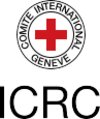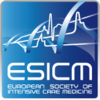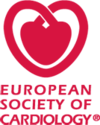
Resuscitation Academy
Background
Survival from out-of-hospital ventricular fibrillation cardiac arrest is extremely variable throughout the United States with high survival rates of 62% in Seattle and King County Washington, and low survival rates in other major communities. Even more fundamental is the fact that only 40 communities in the US have rigorously measured and reported their survival rates. Most communities have no idea how they are performing in terms of managing sudden cardiac arrest. Why is this? There are answers. As proven in Seattle and King County, managers and directors of EMS systems can learn the steps they need to take to improve survival.
The Mission
The goal of the Resuscitation Academy is to improve survival from cardiac arrest. This will be achieved through the enrollment of EMS managers, EMS directors and EMS medical directors, in a program conducted by Seattle Medic One and King County EMS.
Specific Goals:
- Learn how to define the cardiac arrest survival rate in the host community.
- Understand the principles of the Utstein template and how to report data.
- Develop a concrete plan of action to improve survival.
- Measure the effect of the plan of action on cardiac arrest survival.

ILCOR - International Liaison Committee on Resuscitation
The International Liaison Committee on Resuscitation (ILCOR) was formed in 1992 to provide a forum for liaison between principal resuscitation organisations worldwide. Although the criteria for participation were not closely defined, member organisations were expected to have an accepted remit for creating resuscitation guidelines, preferably for more than one country, and to be multidisciplinary in membership. At present, ILCOR comprises representatives of:
- American Heart Association (AHA)
- European Resuscitation Council (ERC)
- Heart and Stroke Foundation of Canada (HSFC)
- Australian and New Zealand Committee on Resuscitation (ANZCOR)
- Resuscitation Councils of Southern Africa (RCSA)
- Inter American Heart Foundation (IAHF)
- Resuscitation Council of Asia (RCA)
The objectives of the ILCOR are to:
- Provide a forum for discussion and for coordination of all aspects of cardiopulmonary and cerebral resuscitation worldwide.
- Foster scientific research in areas of resuscitation where there is a lack of data or where there is controversy.
- Disseminate information on training and education in resuscitation.
- Provide a mechanism for collecting, reviewing and sharing international scientific data on resuscitation.
- Produce statements on specific issues related to resuscitation that reflect international consensus.

ICRC - International Committee of the Red Cross
Mandate and mission
The work of the ICRC is based on the Geneva Conventions of 1949, their Additional Protocols, its Statutes – and those of the International Red Cross and Red Crescent Movement – and the resolutions of the International Conferences of the Red Cross and Red Crescent. The ICRC is an independent, neutral organization ensuring humanitarian protection and assistance for victims of armed conflict and other situations of violence. It takes action in response to emergencies and at the same time promotes respect for international humanitarian law and its implementation in national law.

EHN - European Heart Network
The European Heart Network (EHN) is a Brussels-based alliance of heart foundations and likeminded non-governmental organisations throughout Europe, with member organisations in 25 countries. The EHN plays a leading role in the prevention and reduction of cardiovascular diseases, in particular heart disease and stroke, through advocacy, networking, capacity-building and patient support, so that they are no longer a major cause of premature death and disability throughout Europe.
Our vision is that: Every European has a right to a life free from avoidable cardiovascular diseases.
To achieve this vision, EHN dedicates itself to:
- influencing European policy makers in favour of a heart-healthy lifestyle;
- creating and nurturing ties between organisations concerned with heart health promotion and cardiovascular disease prevention;
- gathering and disseminating information relevant to heart health promotion and cardiovascular disease prevention;
- strengthening our membership capacity.

EuSEM - European Society for Emergency Medicine
EuSEM is a forum for European emergency physicians and non-physicians involved in emergency care in hospital emergency departments and in the pre-hospital environment committed to:
- The highest quality of emergency care for all patients
- The delivery of such care by specialists trained in Emergency Medicine
- A comparable standard of clinical care in Emergency Departments across Europe

ESICM - European Society of Intensive Care Medicine
The European Society of Intensive Care Medicine is an Association of individual persons. The ESICM was founded in March 1982 in Geneva, Switzerland. It is a non-profit making international association.
Objective
ESICM supports and promotes the advancement of knowledge in intensive care medicine, in particular the promotion of the highest standards of multidisciplinary care of critically ill patients and their families through education, research and professional development.
Aims and Missions
ESICM will endeavour to realise this objective by promoting and coordinating activities in the different fields of intensive care medicine fostering research and education in these fields providing recommendations for optimising facilities for intensive care medicine in Europe organising and coordinating international congresses and meetings.
View website
ESA - European Society of Anaesthesiology
The ESA aims for the highest standards of practice and safety in anaesthesia, perioperative medicine, intensive care, emergency medicine and pain treatment through education, research and professional development.

ETCO - European Trauma Course Organisation
The European Trauma Course Organisation offers the only internationally accredited trauma course.
The ETC programme was devised to address specific training needs. It aims at improving the outcome of major trauma by offering state-of-the-art training with a focus on the multi-specialty and multi-professional team approach and on developing non-technical skills as a team member and a team leader.

ESC - European Society of Cardiology
The European Society of Cardiology (ESC) is an independent, non-governmental organisation. Our members and decision makers are health care professionals that give their time and expertise freely, in addition to their daily high-paced clinical and/or research work. The ESC represents over 95 000 cardiology professionals, principally from across Europe and the Mediterranean basin, but also from the rest of the world.
Our mission
To reduce the burden of cardiovascular disease in Europe.